Paella gets its name from the broad, shallow, two-handed pan it's cooked in – from the Valencian Catalan word for pan. At its heart, paella is cooked over steady heat, where short-grain rice absorbs a fragrant stock to become plump and finishes with socarrat – the prized, lightly caramelised crust on the base.
Born in the 19th century around Valencia’s rice fields, the original version was cooked outdoors over wood from local orange trees, the same orchards that bordered the rice fields. Early paellas were rural and resourceful, featuring rabbit and chicken. Today you’ll find celebrated variations including paella de marisco (seafood), mixta (land and sea), and regional cousins like arroz negro (squid-ink rice).
If you’re learning how to make paella, focus on the technique, so you can play around with toppings. Use a wide pan so liquid reduces evenly; choose a short-grain rice such as bomba or Calasparra; and aim for a shallow, even layer of rice. After adding hot stock, don’t stir – you want the grains to drink, not release starch. Adjust heat so the surface gently simmers, then give a brief push of higher heat at the end to encourage socarrat (listen for a faint crackle). Finally, rest the pan off the heat for a few minutes to relax the rice.
On World Paella Day (September 20), gather friends, pick a style you love and let the pan do the talking – our paella recipes below show you exactly how.
This colourful paella showcases the dish's versatility and abundance: chicken, prawns, mussels and rice – an impressive centrepiece for any table and impossible to eat without reaching across for just one more spoonful.
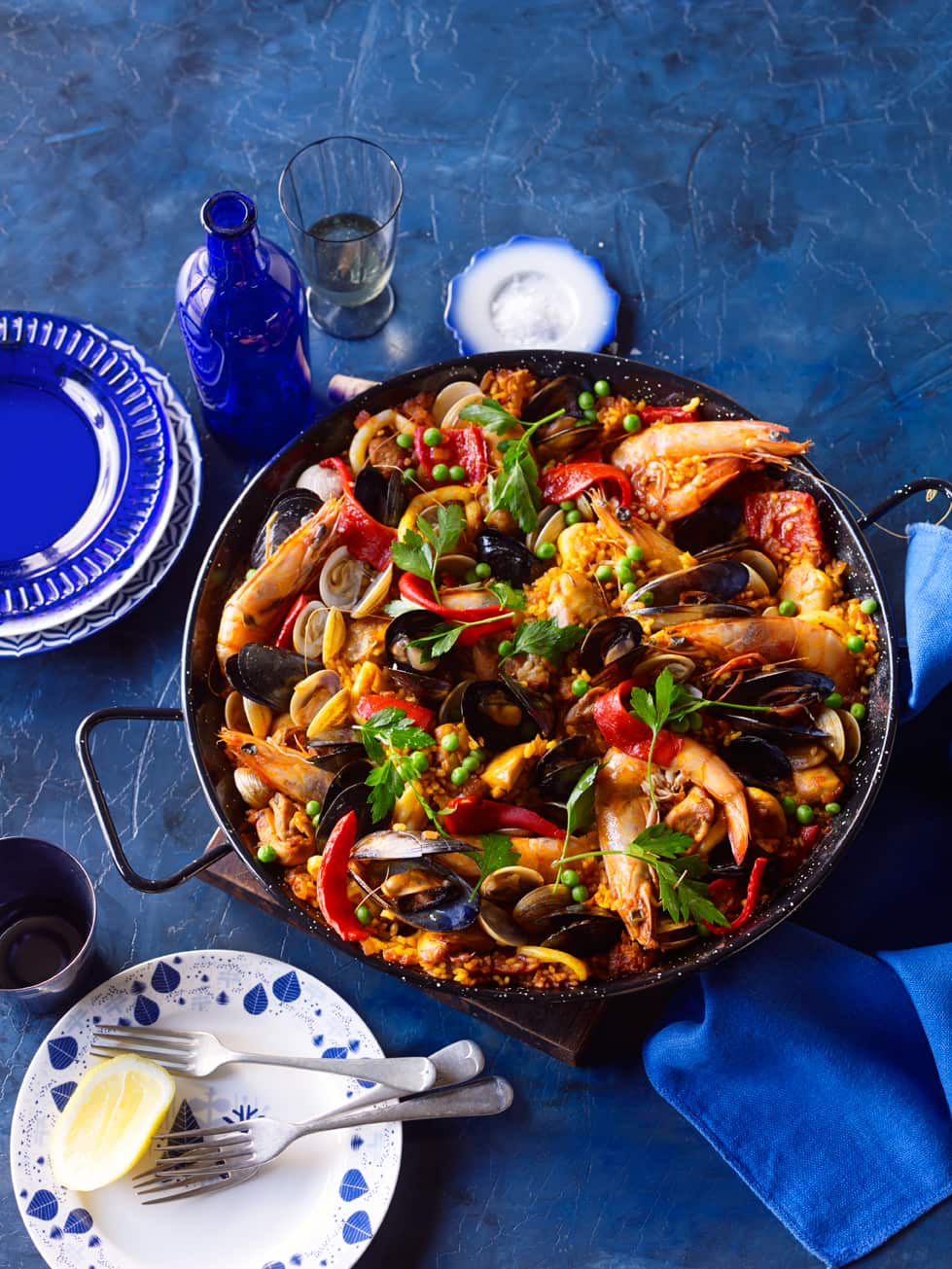
Here's the lowdown on this iconic dish. Credit: Chris Chen
The ingredients may be pared down, but this paella recipe is a striking one to serve, with mussel shells fanned across the pan against a glowing sunset ombré of saffron and paprika-stained rice. Mussels do the seasoning work here, opening as they cook and infusing the rice with briny depth.

Mussel paella. Credit: Alan Benson
While this signature dish at Melbourne's Bar Lourinhã may not be a traditional Valencian paella, with its addition of seafood into the mix, it's built on a traditional base of rabbit and Valencian paella precision: rice spread evenly, heat controlled carefully and a socarrat worthy of digging for.
Chef Matt McConnell advises that, "when the time comes to adding the seafood, layer it so that the things with a longer cooking time are at the bottom and those at the top will cook with residual heat and steam."

Paella Valenciana Credit: China Squirrel
Paella doesn’t have to be heavy with meat or seafood. This version leans on vegetables, saffron and stock to carry the rice, with olives and broccoli stirred in just before serving. The result is bright, balanced and easy enough for a weeknight dinner.
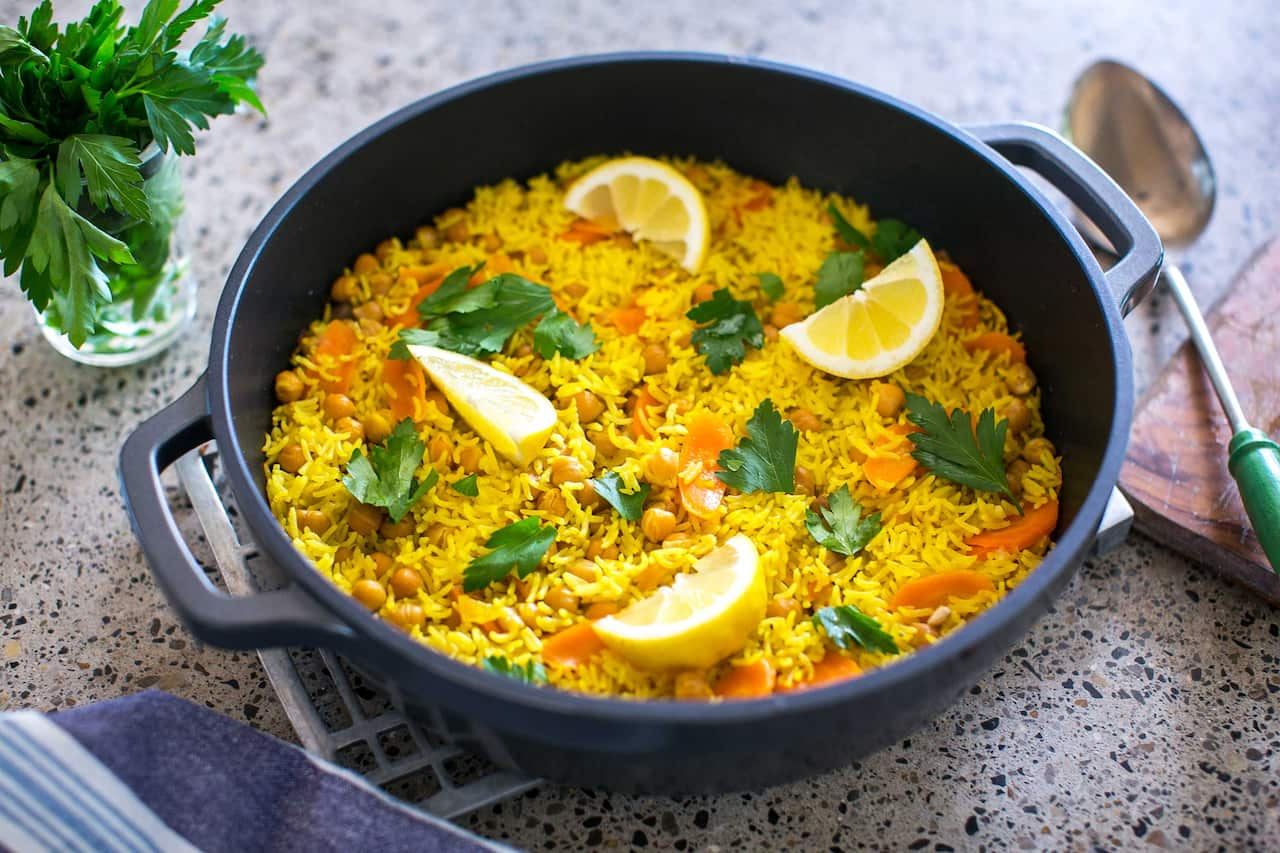
Spanish veggie paella. Credit: Donal's Meals in Minutes
Chorizo brings a smokiness, peas add sweetness, and thinly sliced fennel layers a herbal, anise-edged pop. It’s a paella that plays with contrast – all anchored by golden rice.

Paella with chorizo, peas and fennel. Credit: Benito Martin
Cracking into crab at the table is part of the fun here. The shells bring sweetness and a touch of mess, flavouring the rice as they steam. It’s interactive paella – hands, shells and spoons all working together.

Blue swimmer crab paella. Credit: The Chefs' Line
For chef Luis ‘Tigretón’ Leon, paella is a Sunday ritual. His seafood-only version is cooked with a broth built from prawn shells, saffron and leeks. “The broth is super important,” says Leon, and he’s firm on one rule: never use blue fish like tuna or sardine.
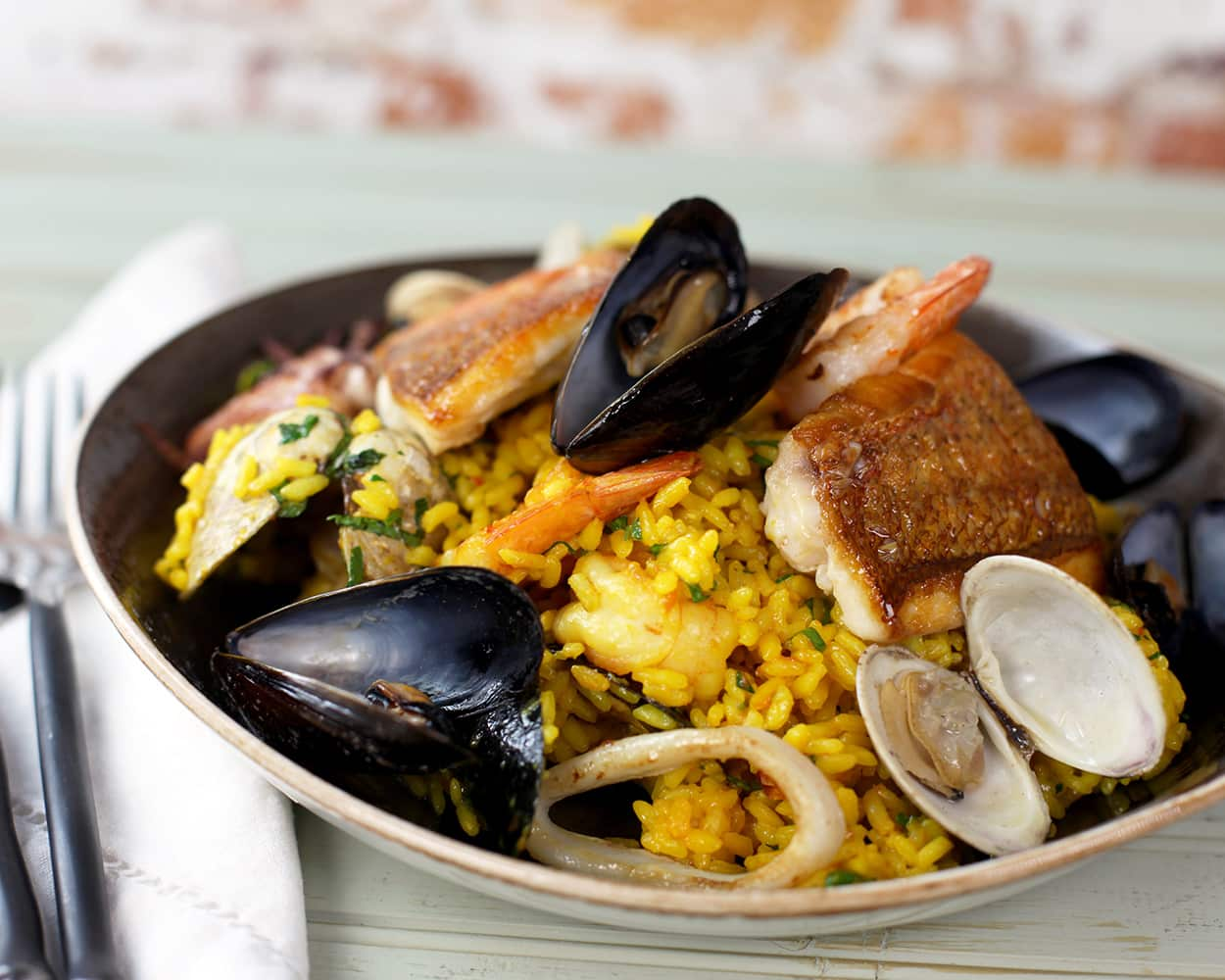
Tigreton's seafood paella. Credit: The Latin Kitchen
Paella on a weeknight isn’t about tradition – it’s about practicality. To this end, a supermarket hot chook, chicken stock powder and a jar of piquillo peppers bring shortcuts to bold flavours and toasty depth.
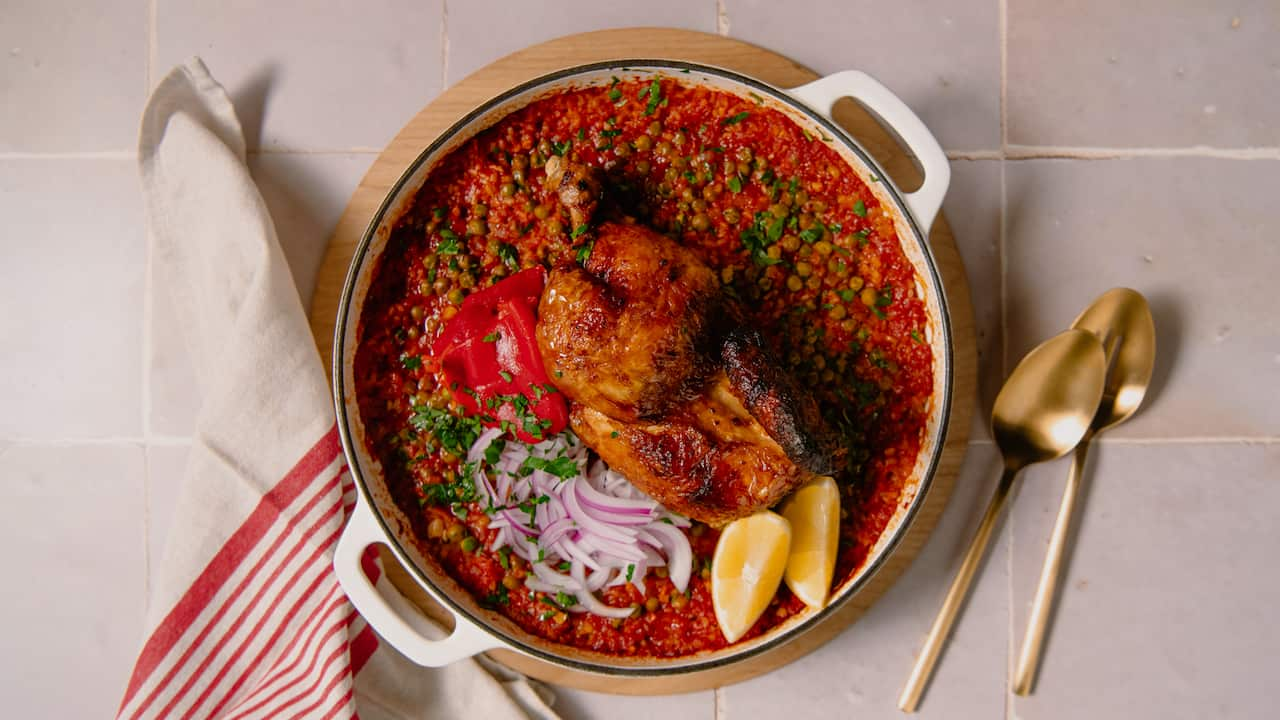
Supermarket chicken paella. Credit: Jiwon Kim
Paella mixta isn’t for purists – it’s the exuberant style that layers land and sea into one saffron-stained pan. Chicken, prawns, squid and crab cook together here, their flavours pooling into the rice to create a version made for feasting.

Paella with crab, prawns and chicken (paella mixta). Credit: Alan Benson
In Mallorca’s northwest, Soller prawns are prized for their vivid red shells and delicate sweetness, fished from deep waters off the island’s coast. Here they anchor a paella with grilled zucchini and green capsicum; a green chilli-laced parsley oil is a spin by chef Yotam Ottolenghi that adds a memorable touch.
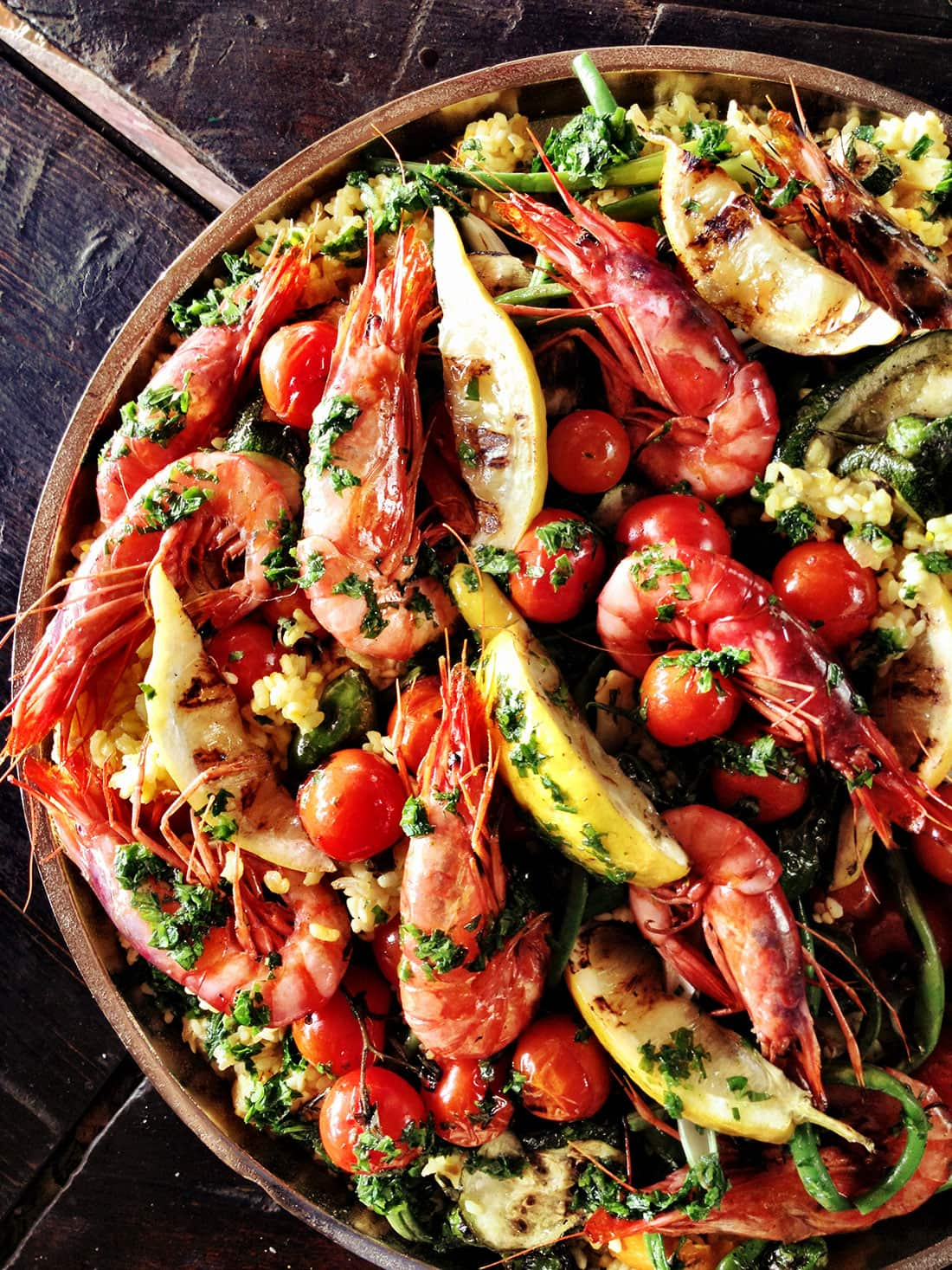
Credit: Yotam Ottolenghi
Ask a Valencian and they may tell you chorizo has no business in paella. But beyond Spain’s east coast, cooks have long bent the rules. This version leans into that rebellion – smoky sausage in one corner, mussels and prawns in another – proof that paella thrives on improvisation.
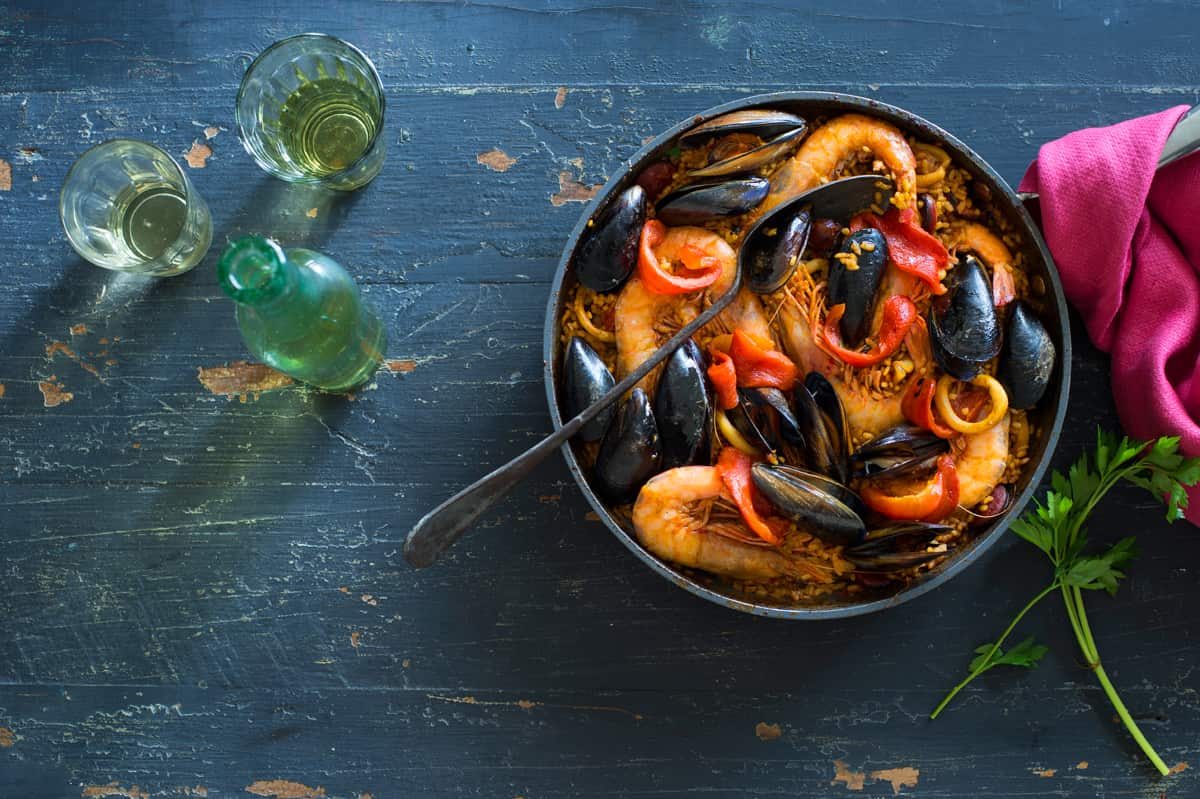
Chorizo and seafood paella.
On Spain’s coast, paella reflects the catch of the day. This Pacific version does the same, swapping in local seafood like Pacific oysters for Mediterranean shellfish. The result feels both familiar and place-specific – a reminder that paella is less a fixed recipe than a canvas for what’s fresh.

Pacific paella.
Paella mixta is the kitchen’s answer to indecision, blending seafood and meat for a best-of-both-worlds approach. This versions serves up prawns, calamari, mussels, clams, chorizo, chicken wingettes and diced pork spare ribs cooked in a DIY prawn stock. It’s hearty, colourful, and ideal for feeding friends or family with plenty to spare.
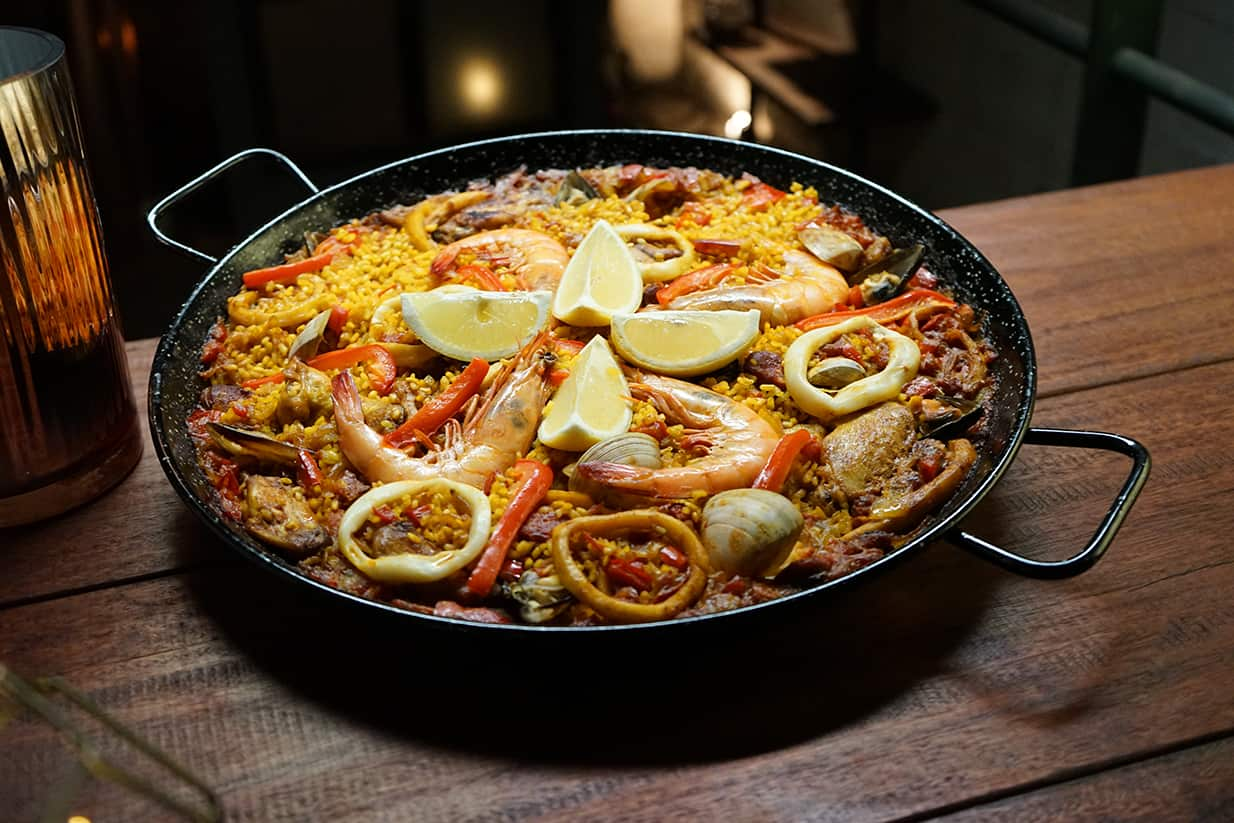
Meat and seafood paella. Credit: The Chefs' Line
Share
SBS Food is a 24/7 foodie channel for all Australians, with a focus on simple, authentic and everyday food inspiration from cultures everywhere. NSW stream only. Read more about SBS Food
Have a story or comment? Contact Us








